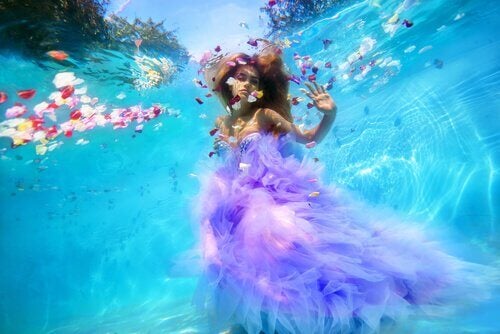Millions of thoughts cross our minds every day, but we select only those we consider most relevant.
We choose the thoughts that most represent us at any given time, that serve to solve specific problems and that are in line with our world vision, people and the future.
- It is this human capacity that allows us to change the world around us and change the way we interpret it.
- Yet we are also fragile and can succumb to negative thoughts that hurt and paralyze us.
Our mind is able to imagine the best, but also to recreate our worst nightmares.
Pathological anxiety, for example, is based on our interpretation of situations that we classify as a threat and that exist only in our imagination.
In other words, we ourselves, influenced by these assumptions about what can happen, are paralyzed by a non-existent threat.
Our thinking, combined with past experiences and body reactions of fear, anticipates disaster.
Fantasy allows us to build parallel worlds, impossible creatures and large scripts. This skill not only benefits artistic creation, but science advances through the fantasy of going beyond what we see.
It is important to know the dividing line between fantasy and reality, it is at this point that the great mystery of what we really want and what we simply imagine is hidden.
The key is to know that we are able to imagine the best, but also the worst, and that everything we imagine is not what we want, it is only that: thoughts.
“When I examine myself and my methods of thought, I conclude that the gift of fantasy meant more to me than my talent for absorbing positive knowledge. “
-Albert Einstein-
You can be in a car, imagine that you suddenly turn the wheel and that after this voluntary act, it triggers a series of events that end up leading to disaster.
We are able to imagine the moment, the words of our loved ones in the hospital, the pain we cause, the image of the wrecked car and, if we want, we even imagine our own funeral, but we don’t want that. .
You can walk down the street, observe a person and imagine a story around them: fantasizing about their life, their past, their workplace, their associations, their weaknesses and even the fantasy of an encounter with them. means that’s the case and not what we want.
Desire is more than fantasy, fantasy remains in our thinking and stimulates our creative spirit.
In desire, there is a component that stimulates action, the intention to move, while in fantasy, the component is mental.
When we want it, we know that something moves us inside and is consistent with our morals and our way of understanding the world.
For example, we have a fantasy, we wonder if we would like to realize it and our answer is yes, from this moment on we can perform an action, a gesture that takes us to the desired object.
To see the difference clearly, think about infidelity
We may have fantasies about other people who aren’t our partners, but we don’t want to do that.
It’s really just thoughts and we have fun in silence, or we turn this story into an artistic expression, this doesn’t mean we’re unfaithful, it’s just fantasies, don’t feel guilty.
If this fantasy becomes desire, it could mean that it goes beyond a mind game, it can change something in us and that desire can lead us to act to achieve our goal.
Our desire may never become a reality, but we may consider that we desire something when we go beyond our thinking.
Fantasy is not desire. We can have fantasies and not want to realize them.

